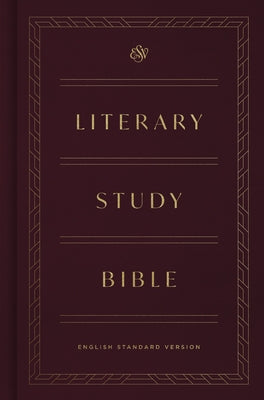
ESV Literary Study Bible
Explore the Literary Structure of the Bible
In order to understand the content of the Bible, readers first need to understand how the content is expressed. The literary forms and features of the Bible are a crucial part of understanding the Bible's message--both for its original audience and for readers today. Compared to conventional study Bibles that answer the what of a passage, the ESV Literary Study Bible guides readers through the Bible text, showing how to read the passage. Combining over 1,200 insightful notes with the complete ESV Bible text, this volume highlights literary features such as genre, images, plot, setting, stylistic and rhetorical techniques, and artistry so readers can more richly understand the unity, flow, and profound depth of the biblical text. First published in 2007, the ESV Literary Study Bible has been refreshed with an all-new typesetting while retaining all the same content that helps readers discover and teach the message of the Bible embodied in its literary forms and features.
- 1,200+ study notes focusing on the literary elements of passages throughout the Bible
- General introduction to the Bible's literary features
- Introductions to each book of the Bible
- Smyth-sewn binding
- Size: 5.375" x 8.625"
- 9.0 Milo type
- 2,032 pages
Bible Version: English Standard
Author: Philip Graham Ryken
Publisher: Crossway
Published: 03/31/2020
Pages: 2032
Binding Type: Hardcover
Weight: 2.45lbs
Size: 8.80h x 5.60w x 1.80d
ISBN: 9781433568718
About the Author
Ryken, Philip Graham: -
Philip Graham Ryken (DPhil, University of Oxford) is the eighth president of Wheaton College. He preached at Philadelphia's Tenth Presbyterian Church from 1995 until his appointment at Wheaton in 2010. Ryken has published more than 50 books, including When Trouble Comes and expository commentaries on Exodus, Ecclesiastes, and Jeremiah. He serves as a board member for the Council of Christian Colleges and Universities, the Lausanne Movement, and the National Association of Evangelicals.
